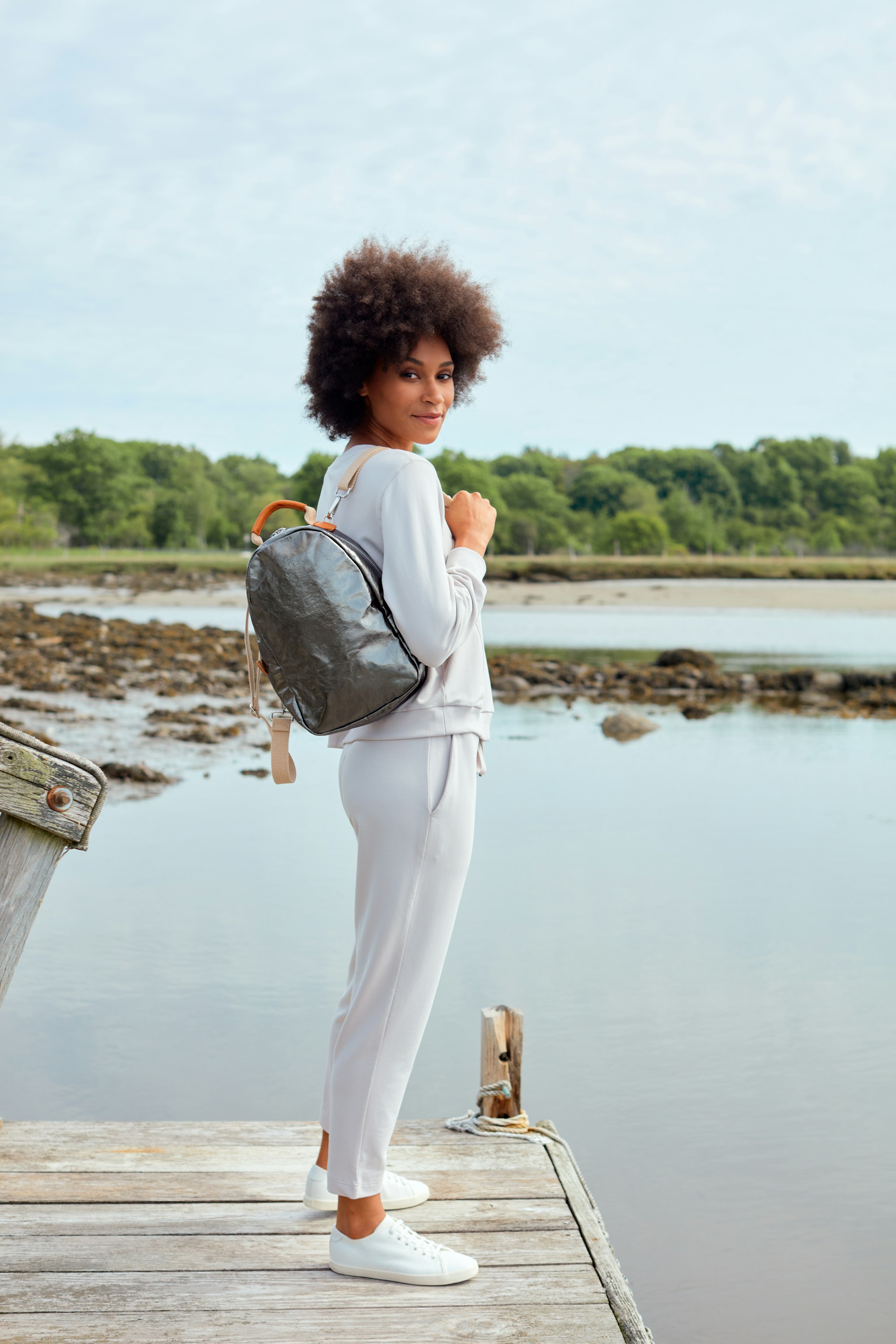UASHMAMA NOW MAKES SHOULDER STRAPS FROM RECYCLED T-SHIRTS FOR MEMMINO BACKPACKS
Talking about recycling..
We’re always very enthusiastic to tell you about our products, how we think of them and bring them to life, how we use them, and above all how you can use them in your homes to best represent sustainability, functionality, and tradition.
But let’s talk about recycling, dear readers, a subject close to our hearts and becoming more important as time goes on. Imagine a beautiful and elegant product that’s supposed to be sustainable but is not actually or entirely. What would you think? We at Uashmama are obliged to guarantee the quality of our materials. Our intent is not only to produce beautiful materials that are functional and sustainable, but also to match them with other products which also respect the environment. That is our philosophy. It’s also our duty to continue research on how we may more effectively reduce the impact we have on the environment.
Our product answers these responsibilities, a constant quest for ultimate sustainability. But where does the material that we use with our AGGO® come from? Or, as grandma used to ask about our boyfriends: “where’s he from?”
SHOULDER STRAPS FOR MEMMO AND MEMMINO BACKPACKS ARE SUSTAINABLE
Elsewhere we talked about the beauty of our best sellers, the MEMMO and MEMMINO backpacks. This time we want to focus on how they connect with one of our best products made out of recycled material: the shoulder strap.
85% of the shoulder straps that come with our backpacks and purses are made of the cotton from used t-shirts. And to reassure you that our product is 100% made in Italy, especially made in Tuscany, we can even tell you the Tuscan district specializing in recycling the material we transform into an accessory that is basic, chic, and resilient!
All that accompanies the growth of AGGO® comes from curiosity, the willingness to pursue an idea, and the commitment to a way of living. Every one of us must be aware and dedicated to constant research and the use of recycled material, thus preserving the environment.

